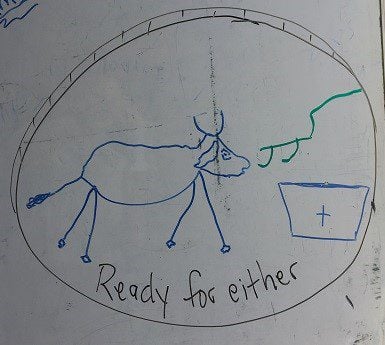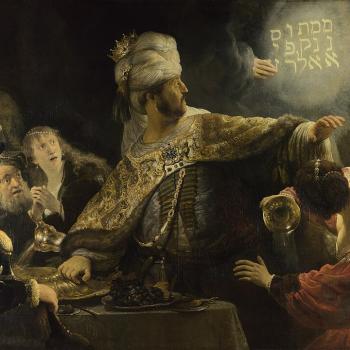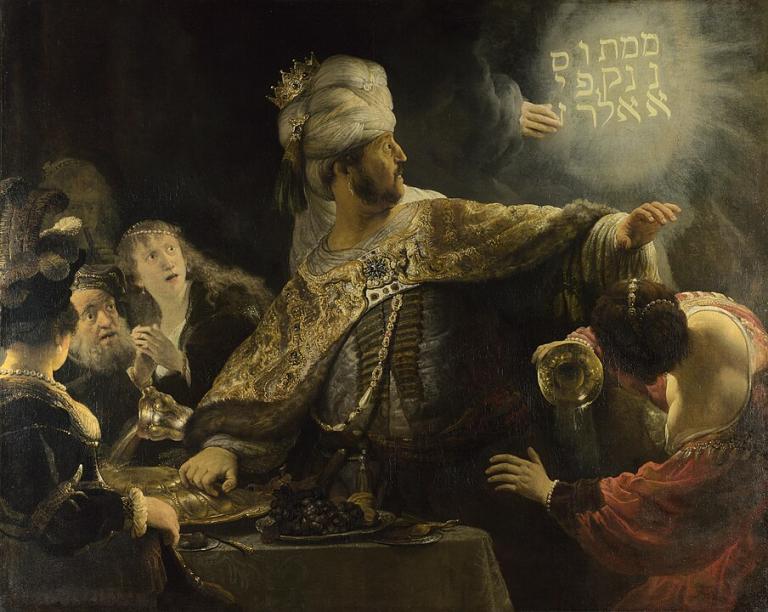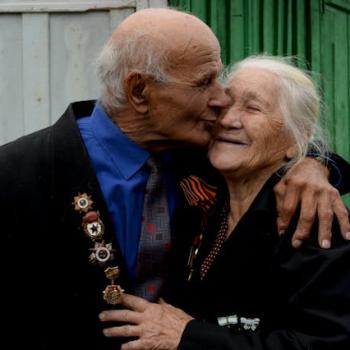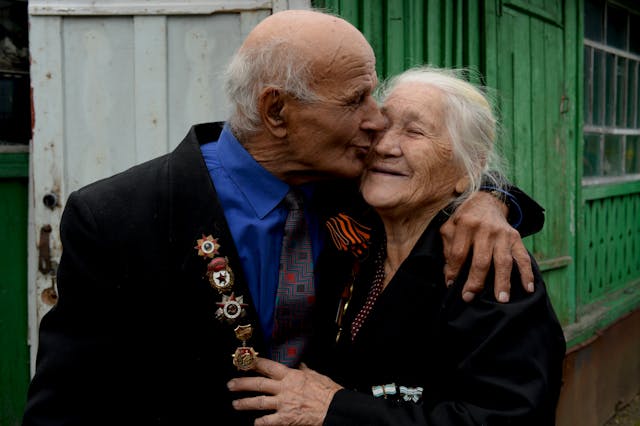I happened to come across a great exemplum (a story used to illustrate a scriptural point) from a priest named Robert McTeigue, writing in the conservative Catholic publication Crisis, entitled Parishes Are Preparing Their People for. . .What, exactly?:
In Matthew 20, we see the apostles James and John (through the good offices of their mother) asking to be placed at the right and left hand of Our Lord in His kingdom. Jesus asks the brothers, “Are you able to drink the cup that I am about to drink?” They assure Him that they can. What happens next?
Not long afterward, James is the first apostle to be martyred. Unlike the red martyrdom of his brother, John suffers a white martyrdom—enduring all manner of abuse and exile—dying after many years of faithful service. He is the last apostle to die. Biblical commentator William Barclay relates the living and dying of both James and John to a Roman coin in circulation during their lifetime. The coin depicts an ox facing both an altar and a plow. The inscription on the coin reads: “Ready for Either.” In other words, the ox is ready for the “red martyrdom” of being sacrificed at the altar, or for the “white martyrdom” of a life of unglamorous service, hitched to the plow until death.
Isn’t that good? This is from the account of Jesus’s great discourse on Christian authority explaining “whoever would be great among you must be your servant. . . even as the Son of Man came not to be served but to serve, and to give his life as a ransom for many” (Matthew 20: 26, 28).
I had never noticed before that even the buildup to that account is profound. James and John make their self-serving request. Jesus asks them if they can drink the cup He is going to drink. They naively say, Yes! And Jesus agrees with them: “He said to them, ‘You will drink my cup'” (Matthew 20:23).
He is referring, no doubt, to His cup of suffering, as He prayed in the Garden of Gethsemane: ““My Father, if it be possible, let this cup pass from me; nevertheless, not as I will, but as you will” (Matthew 26:39). Similarly, everyone who follows Jesus is called to bear a cross of self-denial: “If anyone would come after me, let him deny himself and take up his cross and follow me” (Matthew 16:24). But our crosses and our cups are not identical.
James does drink the cup that Jesus is about to drink. “About that time”–soon after the death of Stephen, the first martyr– “Herod the king laid violent hands on some who belonged to the church. He killed James the brother of John with the sword” (Acts 12:1-2).
But his brother John also, according to Jesus, drank the cup of Jesus. But he lived to a ripe old age. According to tradition, he was the only apostle who died of natural causes.
Fr. McTeigue uses the language of “red martyrdom” and “white martyrdom.” This alludes to some old Catholic categories:
- Red represents Christians who are martyred in an instant, in a violent death while showing love for God and their enemies.
- Green represents Christians who obey Jesus’ command to take up their crosses daily, demonstrating the love of God through lives of self-denial.
- White represents Christians who “die to the world” through temporary or long-term periods of spiritual retreat. Today’s discipleship bases, prayer mountains, and retreat centers give us an experience of white martyrdom.
Lutheran that I am, instead of thinking in terms of these monastic-influenced categories, I see all of this in terms of vocation. Some Christians are called to dramatic tasks, to the point of martyrdom. Others are called to long, ordinary lives of service. Both involve self-denial. Both involve faithfulness to Christ.
And this takes us to the Roman coin with the ox, which faces two possibilities: he may be called to be a sacrifice. Or he may be called to pull the plough. He is ready for either.
Similarly, we Christians do not really know what God is calling us to. But we must be ready for whatever that will turn out to be.
Tomorrow, I invite you to descend with me into a rabbit hole, as I try to find the origin of the story of the ox and to identify this ancient Roman coin. . . .
Illustration: A drawing from a professional development course with African pastors led by John Holz from WELS Friends of Africa



